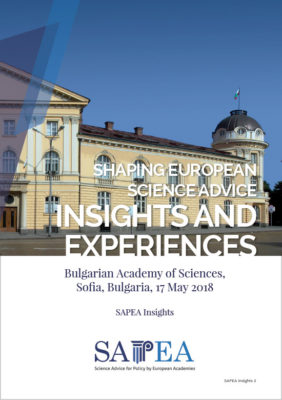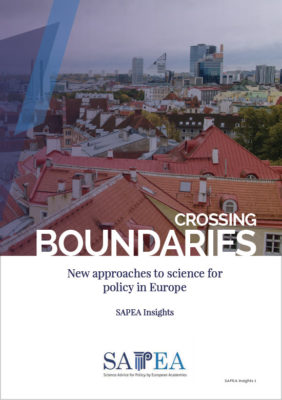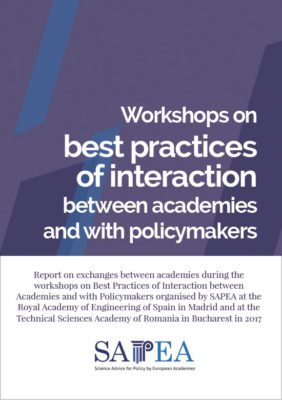SAPEA Insights
Shaping European Science Advice: Insights and Experiences
Hosted by the Bulgarian Academy of Sciences 17 May 2018
Key insights from the symposium.
Timeliness and a good understanding of the policy process are vital for science advice to have impact. Training is crucial in this context.
Scientists must understand their role when providing advice. They are brokers, not advocates.
It has to be acknowledged that science advice is an important part of the policy-making process, but that it is not the only one.
The fruitful interaction and partnership between policy and science depend on trust. Trust needs to be built and trustworthiness needs to be deserved.
Stakeholders need to be brought into the process of gathering scientific evidence.
Transparency and integrity need to be upheld during all stages of the process.
Interdisciplinarity is key.
Permanent scientific advice structures and mechanisms could be a means to ensure stable advice in rapidly changing policy contexts.
Structures need to be developed to reward scientists who engage in science advice activities.
Crossing Boundaries New approaches to science for policy in Europe
Hosted by the Estonian Academy of Sciences 13 October 2017
Key messages of the conference.
Collaboration within and across sectors is essential to success.
Social sciences and humanities play a vital role in policy advice.
Scientists must engage with the public, not just inform them.
International challenges require an interdisciplinary approach.
Citizens’ concerns must be understood by scientists and policymakers.
Creating inclusive communities for shared learning and dialogue is.
The way forward.
Permanent scientific advice structures and mechanisms could be a means to ensure stable advice in rapidly changing policy contexts.
Structures need to be developed to reward scientists who engage in science advice activities.
Report Interactions between academies and with policymakers
Workshops on best practices of interaction between academies and with policymakers
SAPEA, January 2019
Report on exchanges between academies during the workshops on Best Practices of Interaction between Academies and with Policymakers organised by SAPEA at the Royal Academy of Engineering of Spain in Madrid and at the Technical Sciences Academy of Romania in Bucharest in 2017.






